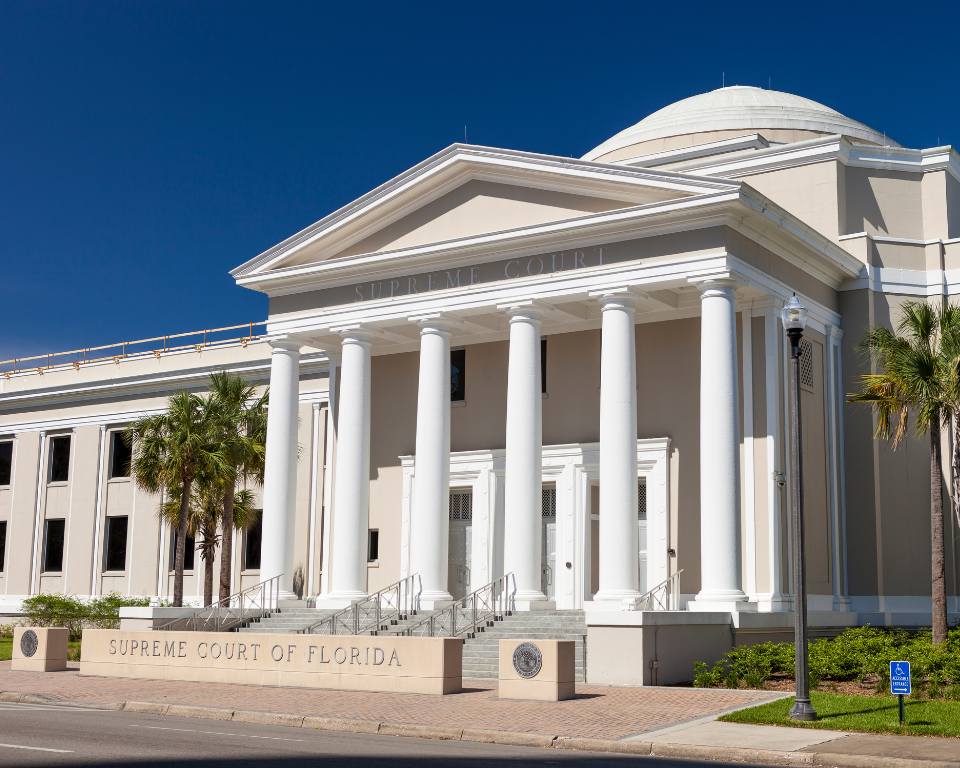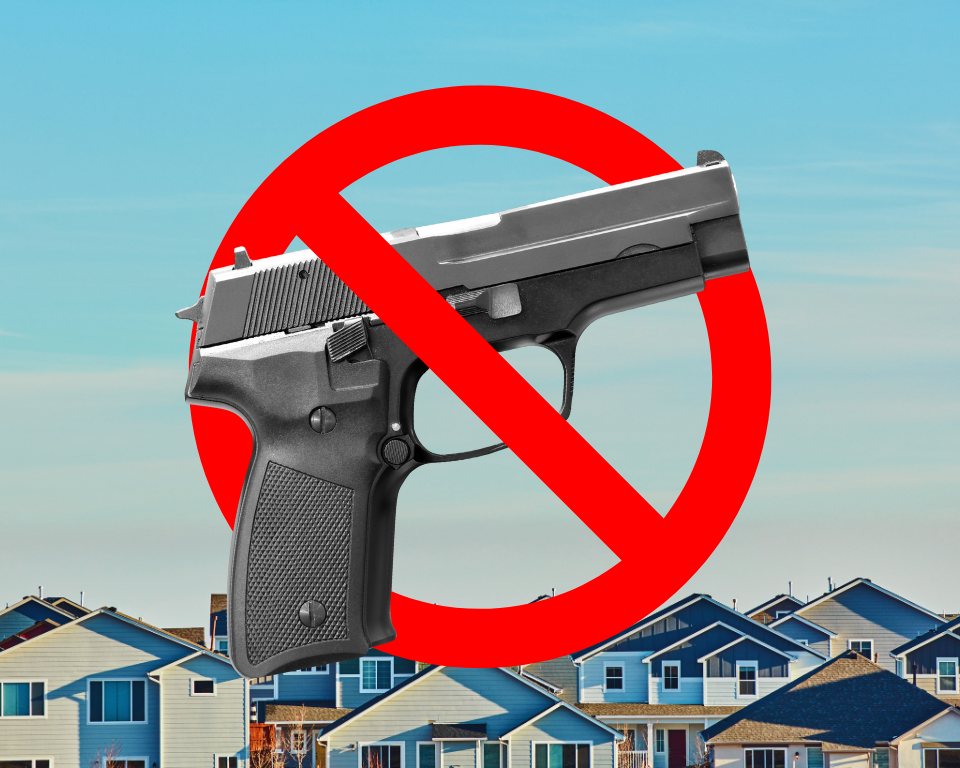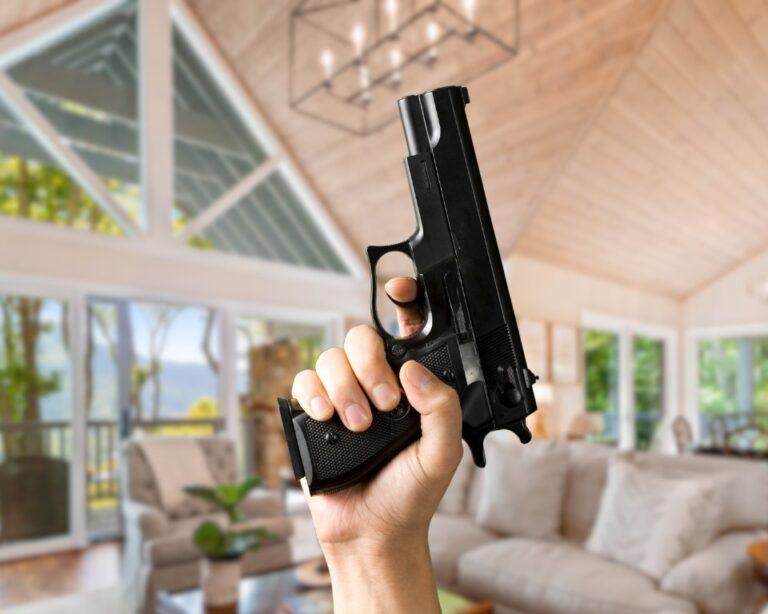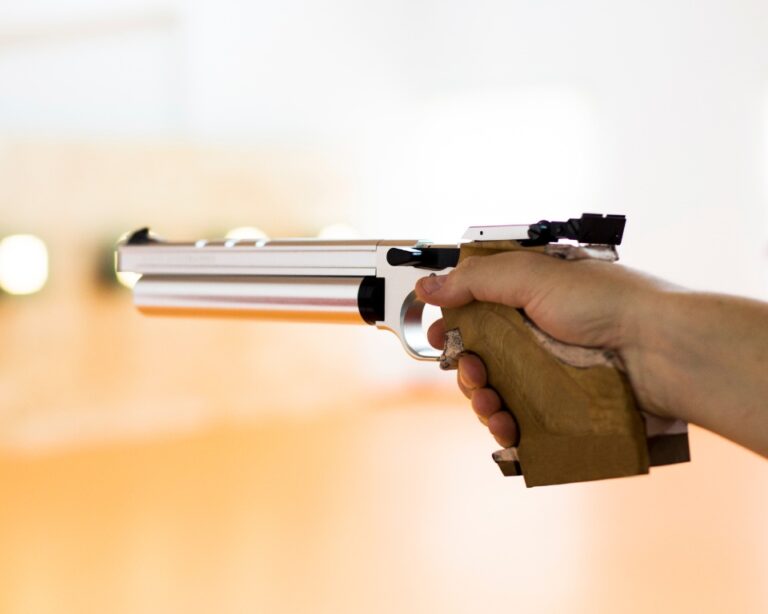Felons and Airgun Ownership: Legal Insights
When it comes to felons owning airguns, there are specific firearm restrictions and laws in place to protect public safety. Understanding the complexities of felon gun ownership rights is crucial, given the legal implications involved.
The U.S. Supreme Court’s recent test on the scope of the Second Amendment right to possess firearms has provided important insights into the felon firearm possession regulations. As a result, the U.S. Court of Appeals for the Tenth Circuit, reflecting on this test, affirmed the constitutionality of a federal ban on convicted felons’ possession of firearms, even for nonviolent offenses.
For instance, Melynda Vincent, a nonviolent felon convicted of bank fraud, challenged the federal ban. However, the federal district court, bound by the Tenth Circuit’s precedent, ruled in favor of the ban’s constitutionality and dismissed her challenge. Ms. Vincent then appealed the decision.
It is essential to note that the Supreme Court’s decision in N.Y. State Rifle & Pistol Association v. Bruen introduced a new test for evaluating the constitutionality of laws affecting the Second Amendment. Although the ‘Bruen’ decision did not directly address the ban on felons’ possession of firearms, it relied on prior precedent that recognized the legality of such prohibitions.
The Tenth Circuit, examining Ms. Vincent’s challenge in light of the ‘Bruen’ decision, found that the new test did not invalidate their precedent. Consequently, the court affirmed the dismissal of Ms. Vincent’s challenge, with a concurring opinion raising questions about the potential impact of the new test on the constitutionality of the federal ban.

Similarly, the Florida Supreme Court declined to take up a challenge to the constitutionality of a state law that prohibits convicted felons from possessing guns. The court’s decision was based on the U.S. Supreme Court’s recognition of the constitutionality of longstanding prohibitions on felons’ possession of firearms.
Furthermore, North Carolina law imposes restrictions on felons owning airguns. Over the years, the law has been amended to remove exceptions and strengthen the prohibition, aligning it with federal law, which also prohibits felons from possessing firearms.
Both federal and state courts have consistently supported the constitutionality of laws prohibiting felons from possessing firearms. The Supreme Court has recognized that the Second Amendment’s rights are not without limits and that longstanding prohibitions on firearm possession by felons are constitutional.
Key Takeaways:
- Felons are legally restricted from owning airguns and firearms to ensure public safety.
- The U.S. Supreme Court and various state courts have upheld the constitutionality of laws prohibiting felons from possessing guns.
- The recent ‘Bruen’ decision provided a new test for evaluating the constitutionality of Second Amendment-related laws.
- Challenges to bans on felons’ firearm possession have generally been dismissed based on existing precedent.
- North Carolina and Florida have strict laws that align with federal regulations, prohibiting felons from possessing firearms and airguns.
Convicted Felon Challenges the Ban
In the ongoing legal landscape concerning convicted felons and airgun ownership, one notable case stands out. Melynda Vincent, a nonviolent felon convicted of bank fraud, bravely challenged the federal ban on the possession of firearms by convicted felons.
However, her pursuit of legal vindication encountered a significant hurdle. The federal district court, bound by the longstanding precedent set forth by the U.S. Court of Appeals for the Tenth Circuit, ruled that the ban is constitutional and subsequently dismissed her challenge. This ruling left Ms. Vincent with no choice but to appeal the decision.

Despite facing adversity, Melynda Vincent’s case serves as a catalyst for evaluating the legal complexities surrounding convicted felons and airgun ownership. Her determination to challenge the ban sheds light on the legal issues that confound individuals seeking to navigate the intricate intersection between felony convictions and airgun possession.
“I firmly believe that my nonviolent felony conviction should not strip me of my fundamental rights. By challenging the ban on convicted felons like myself, I hope to gain clarity and pave the way for reform in the legal landscape.”
Supreme Court’s Decision in ‘Bruen’
The Supreme Court’s decision in N.Y. State Rifle & Pistol Association v. Bruen introduced a new test for evaluating the constitutionality of laws affecting the Second Amendment. While the court did not address the ban on felons’ possession of firearms directly, it relied on prior precedent that recognized the legality of such bans.
This landmark decision has significant implications for felon firearm possession regulations and airguns and felon charges. Although the court did not specifically rule on the constitutionality of the ban on felons owning firearms, it affirmed the legality of longstanding prohibitions on felons’ possession of firearms. This reaffirms the importance of existing regulations prohibiting felons from owning and possessing firearms, including airguns.
The Bruen decision provides guidance to lawmakers and judicial bodies alike, confirming that restrictions on felons owning and possessing firearms are constitutionally sound. It underscores the need to prioritize public safety by preventing individuals with criminal records from accessing potentially dangerous weapons.
It is worth noting that airguns also fall within the scope of felon firearm possession regulations. While airguns may not be as lethal as traditional firearms, they can still cause harm and pose a threat in the wrong hands. Therefore, it is crucial to extend restrictions on felons from possessing airguns as well.
The Bruen decision serves as a reinforcement of the legal framework surrounding felon firearm possession regulations. It upholds the precedent that felons should not have the privilege of possessing firearms, including airguns, as part of their charges. This reaffirmation by the Supreme Court ensures that laws aimed at protecting society from potential harm caused by felons’ access to firearms remain intact and enforceable.

Quote:
“The Supreme Court’s decision in Bruen strengthens the legality of bans on felons’ possession of firearms, including regulations surrounding airguns. It reinforces the need to prioritize public safety and prevent individuals with criminal records from accessing potentially dangerous weapons.” – Legal Expert
Tenth Circuit’s Evaluation of the Challenge
The Tenth Circuit carefully evaluated Ms. Vincent’s challenge in light of the recent ‘Bruen’ decision. After thorough consideration, the circuit court unanimously concluded that the new test introduced by the Supreme Court did not invalidate their longstanding precedent. As a result, they affirmed the dismissal of Ms. Vincent’s challenge, maintaining the constitutionality of the federal ban on felons’ possession of firearms.
This decision reinforces the existing regulations surrounding felons’ firearm possession and underscores the Tenth Circuit’s commitment to upholding these restrictions. It serves as a reminder that convicted felons are subject to legal restrictions on owning airguns, as well as traditional firearms, contributing to public safety and preventing potential risks.
“The Tenth Circuit’s evaluation of Ms. Vincent’s challenge emphasizes the importance of felon firearm possession regulations in ensuring public safety and upholding the law. This reaffirmation of the federal ban on felons’ firearm possession sends a strong message about the restrictions placed on individuals with a prior criminal record.”
Although the dismissal of Ms. Vincent’s challenge may appear straightforward, an interesting concurring opinion raised thought-provoking questions about the potential impact of the ‘Bruen’ decision on the constitutionality of the federal ban. This opinion suggests that future cases might explore the boundaries of these regulations and their compatibility with evolving interpretations of the Second Amendment.
As the debate continues, it is crucial to recognize that these regulations exist to maintain the integrity of the criminal justice system and protect the well-being of society as a whole.
Let us now delve into another jurisdiction that recently addressed the constitutionality of a similar ban. Turn your attention to the Florida Supreme Court’s rejection of a challenge to the state law barring felons from possessing firearms.
Takeaway:
The Tenth Circuit’s evaluation affirms the constitutionality of the federal ban on felons’ possession of firearms. While Ms. Vincent’s challenge was dismissed, the concurring opinion raises intriguing questions about the future viability of such regulations in light of evolving interpretations of the Second Amendment. These restrictions serve as crucial safeguards to protect public safety and prevent potential risks associated with felons owning firearms.
Florida Supreme Court Rejects Challenge
The Florida Supreme Court recently made a significant decision regarding the constitutionality of firearm restrictions for felons. In a case brought before the court, a challenge was made to a state law that prohibits convicted felons from possessing guns. However, the court ultimately declined to review the challenge, affirming the constitutionality of the law.
This decision was influenced by the U.S. Supreme Court’s recognition of longstanding prohibitions on felons’ possession of firearms. The Florida Supreme Court acknowledged that these restrictions have been upheld as constitutional and therefore chose not to intervene in this particular case.
It is essential to note that the prohibition on firearm possession by convicted felons serves an important purpose. It aims to maintain public safety by preventing individuals with criminal records from having access to weapons. This restriction aligns with the broader principles established by both federal and state courts, which recognize the constitutionality of laws that limit gun ownership rights for felons.
“The Florida Supreme Court’s decision reinforces the importance of firearm restrictions for felons in upholding public safety and ensuring the welfare of our communities.”
By upholding the constitutionality of this firearm restriction, the Florida Supreme Court sends a clear message that felons cannot possess guns under state law. This decision has significant implications for individuals with felony convictions in Florida, reinforcing the restrictions on their gun ownership rights.

Felon Gun Ownership Rights
Gun ownership rights for felons are limited due to the potential risks they present to society. The prohibition on their possession of firearms aims to prevent further criminal activity and safeguard communities. It is crucial for felons to understand and abide by these restrictions to ensure compliance with the law and maintain public safety.
Changes in North Carolina Law
North Carolina law has implemented strict measures when it comes to felon firearm laws. In accordance with federal law, convicted felons are prohibited from owning firearms. Over the years, the state has made amendments to the law, removing exceptions and reinforcing the prohibition on felons owning airguns.
These changes have been necessary to ensure the safety and security of society. By aligning with federal regulations, North Carolina aims to prevent felons from accessing firearms, minimizing the risk of potential harm.
It is important to note that these restrictions also extend to airguns. While they may not possess the same lethal capabilities as traditional firearms, airguns can still cause injury or create dangerous situations if used irresponsibly. Therefore, felons are subject to the same restrictions on owning airguns as they are with firearms.

By implementing these strict felon firearm laws and restricting felons from owning airguns, North Carolina aims to safeguard communities and provide a safer environment for its residents. The continuous evolution of these laws demonstrates the commitment of the state to prioritize public safety and prevent potential misuse of firearms and airguns.
Constitutional Considerations
In the realm of felon gun ownership rights, legal issues for felons and airguns are subject to constitutional scrutiny. Both federal and state courts have upheld the constitutionality of laws that prohibit felons from possessing firearms. These longstanding prohibitions are supported by the recognition of the U.S. Supreme Court that the Second Amendment does not grant unlimited rights.
In line with this legal framework, the Supreme Court has affirmed the constitutionality of laws that limit felons’ access to firearms. These restrictions are seen as a necessary safeguard for public safety. By preventing individuals with criminal records from possessing firearms, these laws aim to reduce the risk of potential harm caused by those who have previously engaged in illegal activities.
These legal limitations on felon gun ownership rights also extend to airguns. Although airguns are not classified as firearms under federal law, they are still subject to the same restrictions when it comes to felons owning them. This means that individuals with felony convictions are generally prohibited from possessing airguns, along with other types of firearms.
“The constitutionality of laws prohibiting felons from possessing firearms is grounded in the recognition that public safety should take precedence over an individual’s right to bear arms. By implementing these restrictions, we can help ensure the well-being of our communities.”
It’s important to note that specific regulations may vary from state to state, and it’s advisable for felons to consult legal professionals or relevant authorities to determine the exact legal status in their jurisdiction.
Overall, the constitutional considerations surrounding felon gun ownership rights involve balancing the preservation of public safety with individual constitutional rights. These legal restrictions, upheld by both federal and state courts, aim to prevent further criminal activity and protect the well-being of the community.
Common Questions About Felon in Possession
When it comes to the offense of felony in possession (FIP), there are several common questions that individuals may have. Let’s address some of these inquiries to shed light on the regulations surrounding felon firearm possession.
One frequently asked question is whether felons can possess long guns. Unfortunately, the law generally prohibits felons from possessing any type of firearm, including long guns. Regardless of the specific firearm, the possession of any firearm by a convicted felon is typically prohibited.
Another question that often arises is the impact of a no contest plea or a PJC (prayer for judgment continued). It’s crucial to understand that regardless of the plea entered or the legal term used, a conviction obtained for felon in possession counts as a disqualifying factor. Therefore, felons should be aware that even a no contest plea or a PJC does not exempt them from the firearm possession regulations.
Lastly, there is often confusion regarding whether a conviction on appeal counts towards the prohibition on felons possessing firearms. In most cases, a conviction obtained through the appellate process does count as a disqualifying factor. Once a conviction has been finalized, regardless of whether it was obtained through an appeal, it is considered valid under the felon firearm possession regulations.







